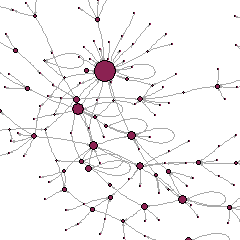I am proud to announce that our group International Network on Digital Labor (INDL), together with the Access to Knowledge for Development Center (A2K4D) at The American University in Cairo’s School of Business, is organising the inaugural conference of the Middle East and Africa (MEA) chapter of INDL titled ‘Digital Labor Perspectives from the Middle East and Africa.’ Organized in collaboration with the International Labour Organization (ILO), Digital Platform Labor (DiPLab), Weizenbaum Institute and Université française d’Egypte, this conference will be held on May 28, 2024, in Cairo, Egypt.

Rationale
Digital labor is at the heart of our evolving economies. To address the specific challenges and developments in the Middle East and Africa (MEA), we are launching a dedicated chapter of INDL for the region.
This conference provides a unique platform to present research related to the MEA region, both ongoing and/or burgeoning. The conference offers opportunities for scholars and practitioners to engage with topics such as platformization, automation, gig economy dynamics, and technology-mediated labor.
INDL-MEA will feature three tracks: one in Arabic, one in English, and one in French, reflecting the linguistic diversity of the region.
Topics
Submissions must be in reference to the MEA region, for instance: in perspective, case studies, or focus.
Submission topics may include but are not limited to
- Case studies examining platforms, gig economy workers, and online digital labor in MEA
- Exploring algorithmic management practices in work processes, recruiting, and HR in MEA
- Issues of digital platform labor on gender and inclusion in the MEA region
- Consequences of the shift to digital labor on workers, businesses, economies, and labor markets in MEA
- Effects of remote work and digital labor on employee well-being and productivity in MEA
- Policy responses to the rise of digital labor and automation in MEA, including regulatory measures and government intervention
- Strategies for organizing digital workers and managing geographically distributed workforces in MEA
- Intersectional perspectives on digital labor in MEA
- Exploring AI and digital labor through a decolonial lens in MEA
- Challenges posed by Generative AI to human labor in MEA
Submissions
We invite submissions of anonymized abstracts for papers, case studies, and policy briefs related to these topics. Abstracts, up to 500 words, can be submitted in Arabic, English, or French through our website INDL-MEA.
Important Dates
- Deadline for submissions: January 31, 2024
- Acceptance notification: February 15, 2024
- Registration opens: TBA
- INDL-MEA conference date: May 28, 2024
Together, let’s foster a thought-provoking dialogue and contribute to shaping the future of digital labor in the Middle East and Africa.
For more information, please see the INDL website.
To submit an abstract, click here.


